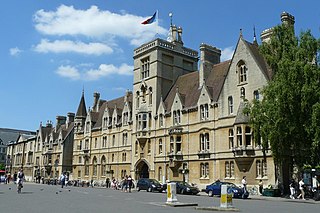
Balliol College is a constituent college of the University of Oxford. Founded in 1263 by nobleman John I de Balliol, it has a claim to be the oldest college in Oxford and the English-speaking world.
Sir Colin Renshaw Lucas, is a British historian and university administrator. From 1997 to 2004, he was the Vice-Chancellor of Oxford University. In May 2006, he was appointed Chair of the Board of the British Library for a four-year term ending 2010.

The Oxford Internet Institute (OII) serves as a hub for interdisciplinary research, combining social and computer science to explore information, communication, and technology. It is an integral part of the University of Oxford's Social Sciences Division in England.
The Europaeum is a network of leading universities in Europe. Founded in 1992 by three universities - Bologna, Leiden and Oxford - it currently has 17 member universities in 13 countries.
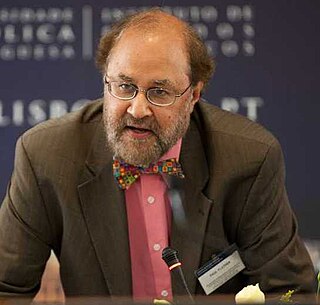
Paul Charles Ram Flather is a British academic. Until 2018 he served as the Secretary-General of the Europaeum, an association of leading European universities, and is Fellow of Mansfield College, Oxford. He is the son of Shreela Flather, Baroness Flather. He was formerly a journalist working for the BBC, Times newspapers and the New Statesman where he was deputy editor. He has written for many publications on education and politics.
Jasper Griffin was a British classicist and academic. He was Public Orator and Professor of Classical Literature in the University of Oxford from 1992 until 2004.
Alexander Dunlop Lindsay, 1st Baron Lindsay of Birker,, known as Sandie Lindsay, was a Scottish academic and peer.
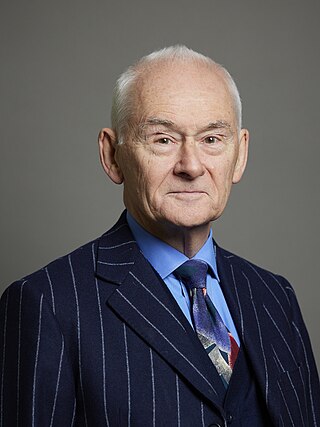
Jonathan Patrick Moynihan, Baron Moynihan of Chelsea, is a British businessman, venture capitalist and life peer. He served as the CEO and executive chairman of PA Consulting Group from 1992 to 2013.

Ngaire Tui Woods is the founding dean of the Blavatnik School of Government and professor of Global Economic Governance at the University of Oxford, formerly a professor at Harvard University. She founded the Global Economic Governance Programme and is the co-founder of the Oxford–Princeton Global Leaders Fellowship programme.
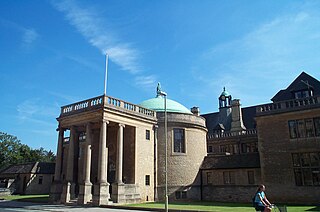
Rhodes House is a building part of the University of Oxford in England. It is located on South Parks Road in central Oxford, and was built in memory of Cecil Rhodes, an alumnus of the university and a major benefactor. It is listed Grade II* on the National Heritage List for England.
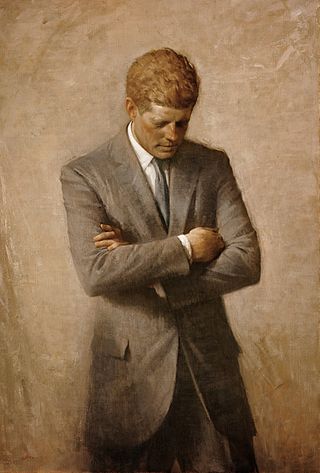
Kennedy Scholarships provide full funding for up to ten British post-graduate students to study at either Harvard University or the Massachusetts Institute of Technology (MIT). Susan Hockfield, the sixteenth president of MIT, described the scholarship program as a way to "offer exceptional students unique opportunities to broaden their intellectual and personal horizons, in ways that are more important than ever in an era defined by global interaction.". In 2007, 163 applications were received, of which 10 were ultimately selected, for an acceptance rate of 6.1%.

Jonathan Daniel Portes is Professor of Economics and Public Policy at the School of Politics & Economics of King's College, London and a senior fellow at UK in a Changing Europe.

Charles R. Conn is a Canadian and American CEO, conservationist and author. In 2021 he co-founded and is partner of Monograph, a life sciences venture firm. In 2019 he was the CEO of Oxford Sciences Innovation. Previously, he was the warden and global CEO of Rhodes House and the Rhodes Trust, the organization responsible for administering the Rhodes Scholarship from 2013 to 2018.
Thomas Wilson was a 20th-century British economist, who spoke out strongly against the introduction of the poll tax in Britain.

Coralia Cartis is a Romanian mathematician at the University of Oxford whose research interests include compressed sensing, numerical analysis, and regularisation methods in mathematical optimization. At Oxford, she is a Professor in Numerical Optimization in the Mathematical Institute, and a tutorial fellow of Balliol College.
Stefano Zacchetti was an Italian academic specialising in Buddhist studies.
The Department of Economics is an academic department of the University of Oxford within the Social Sciences Division. Relatively recently founded in 1999, the department is located in the Norman Foster-designed Manor Road Building.

James M. Manyika is a Zimbabwean-American academic, consultant, and business executive. He is currently a Senior Vice President at Google-Alphabet and a member of the senior leadership team. He is also known for his research and scholarship into the intersection of technology and the economy, including artificial intelligence, robotics automation, and the future of work. He is Google's first Senior Vice President of Technology and Society, reporting directly to Google CEO Sundar Pichai. He focuses on "shaping and sharing" the company's view on the way tech affects society, the economy, and the planet. In April 2023, his role was expanded to Senior Vice President for Research, Technology & Society and includes overseeing Google Research and Google Labs and focusing more broadly on helping advance Google’s most ambitious innovations in AI, Computing and Science responsibly. He is also Chairman Emeritus of the McKinsey Global Institute.










